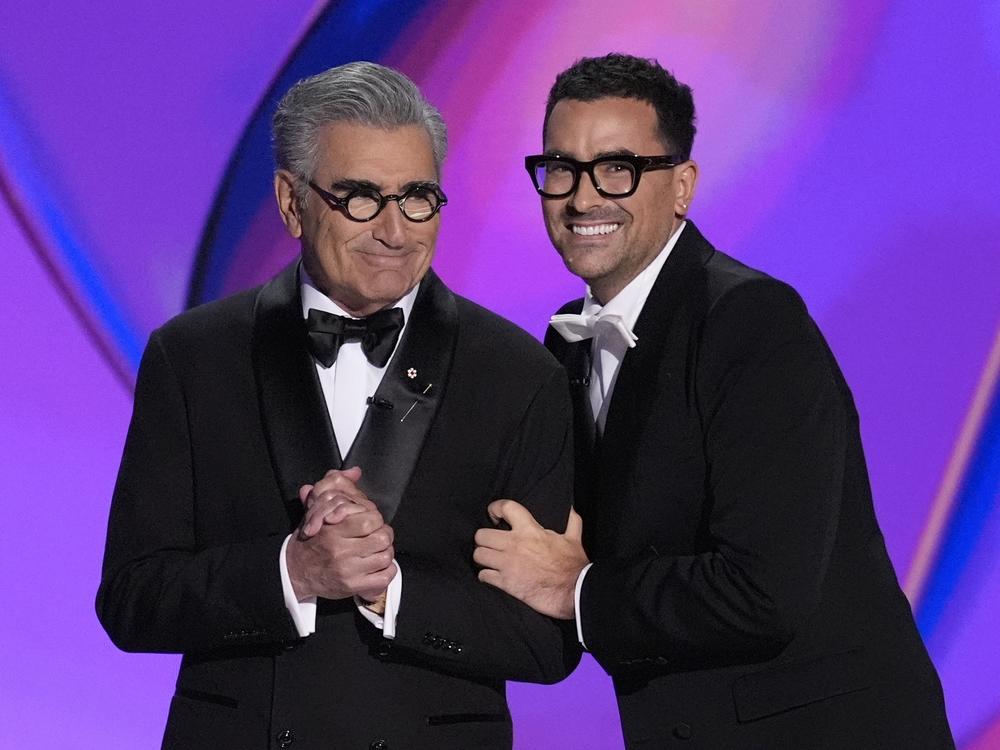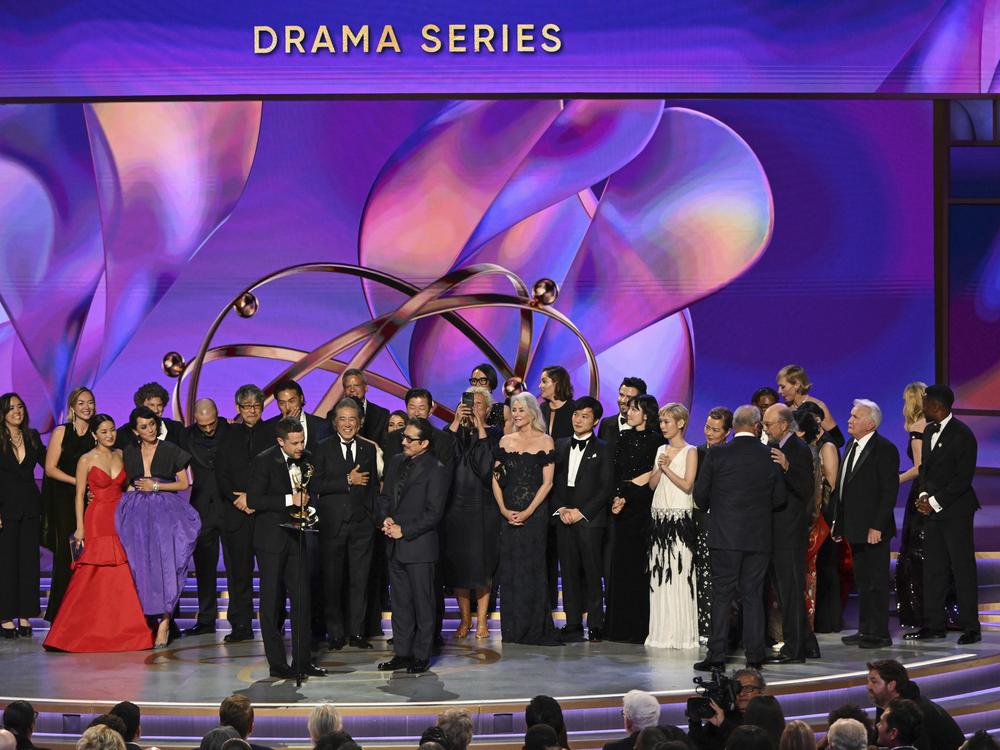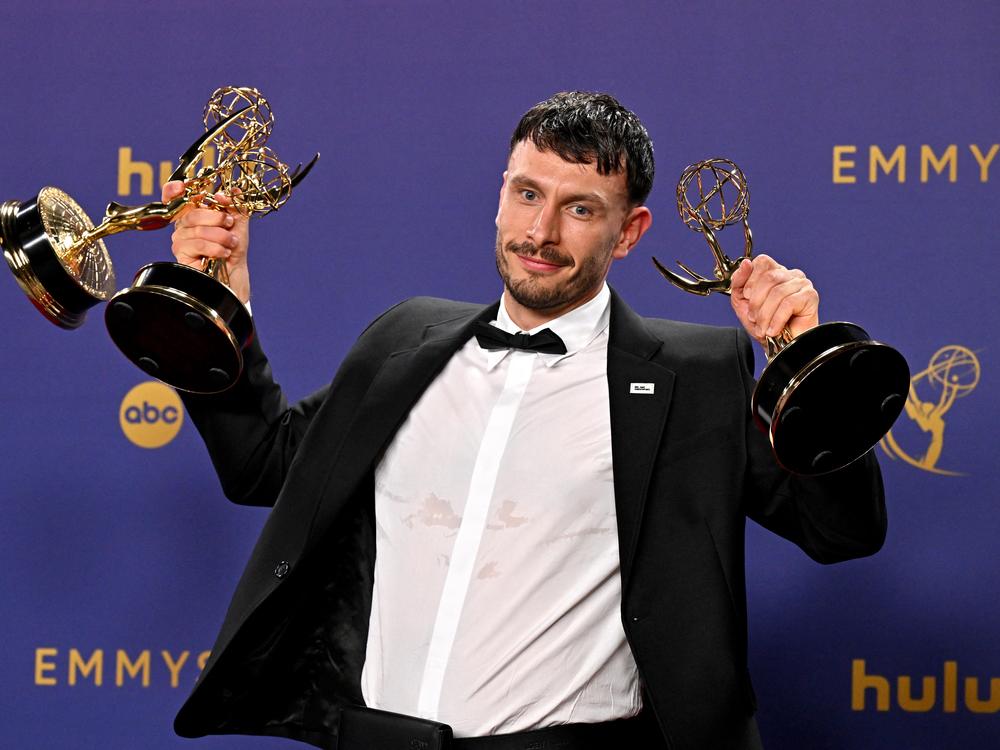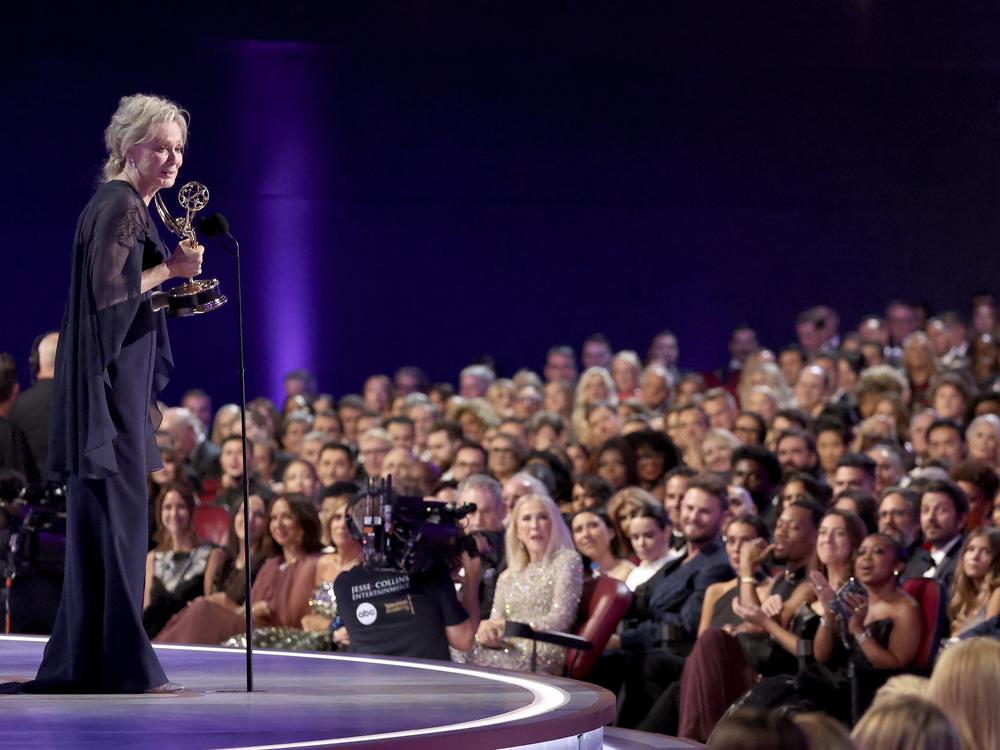Section Branding
Header Content
5 takeaways from the 2024 Emmy awards
Primary Content
The Emmy Awards on Sunday night didn't offer up one single show that outperformed all the rest. Instead, a few shows split most of the major categories, without too many surprises (there was perhaps one). Hosts Eugene and Dan Levy did their best to keep things moving, and as always, everyone was very thankful. Here are a few takeaways from the ceremony and the Emmy season.
Shōgun was the sweeping historical drama that swept the top categories. More could follow.
Shōgun is the biggest Emmy winner this year, after 14 awards last weekend at the Creative Arts ceremony and four on Sunday night: the show took home outstanding drama series, in addition to awards for lead actor Hiroyuki Sanada, lead actress Anna Sawai, and director Frederick E.O. Toye. Sweeping historical epics are not as popular as they once were, and over and over, FX and Hulu were praised for being willing to support an expensive period piece that was largely in Japanese with subtitles. It's going to be interesting to see whether there is any effort in the next couple of years to pursue these sweeping epic series like the ones that used to air in the '70s and '80s, like North and South or The Thorn Birds.
It's hard to make an exciting awards show when it's too soon after the last show.
The last Emmy Awards were only in January of this year, after being delayed by the actors' and writers' strikes. Thus, we just did all of the celebrating of beloved shows, the saluting of people who are in The Bear and Hacks, and discussions of how important television is to people. It might seem like the difference between a year and 8.5 months isn't that much, but it did indeed feel like we just did this, and it felt a little lifeless as a result. Not because there's anything wrong with the winners, but just because ... you know, we just did this.
Baby Reindeer cleaned up, and its creator hopes it will prove a point.
The Netflix series created by Richard Gadd won awards for lead actor, supporting actress, writing, and outstanding limited series. It may be in the middle of a lawsuit from the woman who says she inspired the stalker played by Jessica Gunning, but that didn't bother Emmy voters, who gave Gadd three opportunities to make speeches. He took the opportunity to point out that the show didn't have established intellectual property, didn't have established stars, and became a hit anyway. It would be lovely to think that Netflix – and other outlets – will take the lesson that risks can pay off.
Hacks came up big, and The Bear may have run into a category problem.
The Bear, which was a sensation at the Emmys in January, did very well in the comedy categories. It won for lead actor (Jeremy Allen White), it won for supporting actor (Ebon Moss-Bachrach), it won for supporting actress (Liza Colón-Zayas), and it won for directing, for the episode “Fishes.” (Keep in mind that these are awards for season two, not the most recent season.) The one acting category in which The Bear didn't win was lead actress, where Ayo Edebiri lost to Jean Smart after winning in the supporting actress category last year.
It was a bit of a sign of things to come during the ceremony: Hacks also picked up the critical award for comedy writing (for the episode “Bulletproof"). And then, unlike at the most recent Emmys, The Bear did not win outstanding comedy series; Hacks did. Given that there was a biting joke in the monologue from hosts Eugene and Dan Levy about the widespread sense that The Bear doesn't belong in the comedy category in the first place, and given the laugh it got, it may be that some people who were perfectly happy to reward the wonderful performances on the show were ultimately hesitant to give the award for outstanding comedy series to something they don't consider a comedy.
The shtick between awards was ... fine?
As with many awards shows, Emmys night featured a recurring bit between awards presentations. This evening featured a series of groups of actors who had some connection to each other: TV moms, TV dads, TV doctors, TV lawyers, TV coaches. There was even a pairing of Ron Howard and Henry Winkler to mark the 50th (!!) anniversary of Happy Days. But these moments always seem to be somehow less than the sum of their parts, and this year was no exception. There are a lot of TV dads; just picking three and having them present together on a set that looks like a living room to deliver patter that sounds exactly like the patter on every other awards show doesn't really celebrate anything except whoever booked the talent for the telecast. One point for having Winkler punch the jukebox on the diner set to get it to play, though, just like Fonzie used to do. That was fun.





